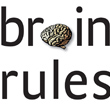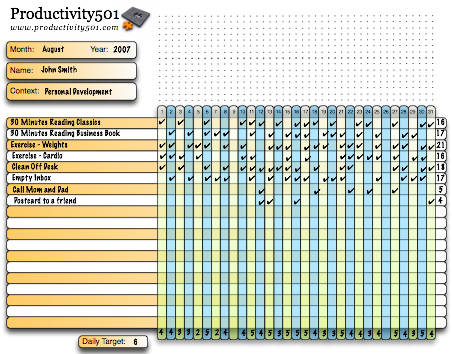You can't rely on your college education to suffice for the rest of your career. If you want to stay at the peak of your earning potential, you will need to continue your education throughout your career. This can be done in a formal or informal setting. Informal education is very important. It may never show up on your resume, but it helps you stay up-to-date. Formal education has the added benefit of letting you work toward some type of recognition (degree or certificate) that employers are likely to reward. In some jobs, you can move to a higher pay-scale by adding a degree. In this article we are going to look at some tips and methods for both formal and informal education. … [Read more...] about Tips for Continuing Education
Development
11 Steps in Becoming Educated for Your Dream Job
I had quite a few comments about taking classes online in my post "17 Things You Should Stop Doing". When LifeHacker linked to the article, they had even more comments from their readers. Many of the comments were negative, saying that you shouldn't take classes online. So, I wanted to take some time to talk about the best way for college to fit into your career. First, here is a little background about my education to give you an idea of where I'm coming from. I have a bachelor's and master's degree in music composition (both taken at physical universities where I was sitting in class). I am currently working on my thesis for a master's focused on software engineering that I took … [Read more...] about 11 Steps in Becoming Educated for Your Dream Job
Learning to Stay Current
Imagine that your memory was only good for two years. Anything that you learned over two years ago was forgotten. The only education you had at your disposal was the things you had learned in the past 24 months. This should be a pretty terrifying prospect for anyone. However, some people would find themselves unable to function at all, while others would find themselves merely handicapped. It all depends on how much effort each individual has put into learning new things in the last two years. Some people graduate from college with the idea that they can stop learning. They pick up some additional education in the form of on-the job-training, but the amount they learn each year … [Read more...] about Learning to Stay Current
Optimal Sleep
Sleeping is something we don't usually think much about, but if you could do something to convert just 90 minutes of each day from sleep time into productive time, that would give you an extra 10 hours each week. Steve Pavlina discovered that he could reduce the amount of sleep he required by an average of 90 minutes each day by getting up at 5 am 7 days per week. He only goes to bed when he is tired enough that he will immediately fall asleep. You can find more about his experience here and here. Polyphasic sleep is a drastic method of changing your sleeping schedule. Basically, you try to train your body to enter deep sleep immediately by taking a 20 to 30 minute nap every 4 hours. … [Read more...] about Optimal Sleep
Striving for Genius
Thomas Malthus ( 1766 - 1834) had a theory that continual increase in the world population would eventually cause food demand to outpace supply, and a collapse that would push the survivors back to subsistence farming conditions. Obviously, this hasn't happened and there are a number of theories why. For example: Malthus' theory is just flat out wrong. He didn't take into consideration the growth of technology and the productivity of farming over the last 200 years has increased faster than what is necessary to (temporarily) prevent worldwide famine. Population levels determine agricultural output, not the other way around. Malthus didn't understand the impact of … [Read more...] about Striving for Genius
Understanding Other’s Perceptions
The other day I overheard some young people talking. A fresh graduate from high school was posing this question to his peers. Is it illegal to wear a ski mask into a bank to conduct business? Obviously, I would not suggest trying this to find out. The brief snippet of this conversation I overheard started me thinking about how important it is to understand others' perception. If you walk into a bank wearing a ski mask, your intentions are far less important than others' perceptions of your intentions. When I'm on a bus or subway, I like looking around and trying to see how much I can tell about the fellow passengers just by looking at them. It is a simple way I try to keep … [Read more...] about Understanding Other’s Perceptions
Overcompensating to Change Habits
The strobe light in the device flashed and made the wheels look like they were spinning one way or another. Fred adjusted his pressure on the lever and watched the wheels closely while plucking the last string. "I think that does it" he announced as he shut off the power to his tuner and started to pack up. I was eleven, and completely fascinated watching the piano tuner work his magic on our family instrument. I learned a number of things that day. One of the more interesting facts was the way that the pegs in the piano hold a tune. I noticed that Fred would never tune directly to a note, he would always over-tune and then come back to the desired pitch. He explained that if he … [Read more...] about Overcompensating to Change Habits
Managing Electricity (and everything else)
You can't manage what you can't measure. A lot of my consulting work centers around helping people deal with the business consequences of that sentence. Giving businesses real-time data about what is going on can solve a lot of problems, just because it gets things out in the open where they can be seen and discussed. A good example of personal data that ignores this little truth is your electric bill. Electric bills aren't real time--you get them once each month. By the time you see how much you owe, you only have a vague idea about what might have produced those dollar figures. You might see a low bill and think "Oh yeah, we were gone most of the month." You might see a high … [Read more...] about Managing Electricity (and everything else)
Dealing with Difficulties
I was reading a biography of Albert Einstein and was struck by his determination and persistence. It wasn't the way that he developed his theory of relativity that was impressive. I was impressed with the way he approached difficult reading materials when he was young. Einstein had been given a book by Maxwell about electromagnetic. He started reading and made it about 10 pages into the book before he was confused. So he started over. The second time he made it 15 pages before he stopped understanding the text. So he started over again. Gradually he made his way through the entire book. I was very impressed with his determination and the willingness to start over if … [Read more...] about Dealing with Difficulties
Using Different Parts of your Brain
There was some research done into what parts of the brain were triggered when writing at a computer versus what parts were triggered when writing with a pencil and paper. The experiments showed that writing by hand triggered activity in significantly different portions of the brain than when writing at a computer. (See Mozarts Brain and the Fighter Pilot book.) Obviously, it is expected that there would be some difference because of the varied muscle motor skills required by each activity. However, the difference was greater than what would be expected by just the required motor differences. The conclusion of the researchers was that we think significantly differently when writing … [Read more...] about Using Different Parts of your Brain
That Looks Easy!
This weekend, my brother-in-law graciously offered to tile our bathroom. He does this for a living, so he is naturally very good at it. I, on the other hand, do not, and am naturally very, very bad at it. What struck me as amazing is how easily he came in, looked at the bathroom, came up with an optimal placement and started on it. It looked pretty easy. Later, he was marking the tiles that needed to be cut and handing them to me to cut on the tile saw. He would hold the tile one way, make a mark, hold it another, make a mark and then use a square to draw a line showing me where to cut it. Simple. Not really. I tried my hand at marking the tile while he made some complicated … [Read more...] about That Looks Easy!
Experienced-Based Education
Everyone is familiar with traditional education. You sit in a class and a teacher teaches. This is an important part of development. But at some point, every individual has to take charge of their own education. To do this, one must look at the root of learning. What is it that makes some experiences add tremendous value to our lives while other experiences do not? On a very basic level, experiences that are unfamiliar usually add more value than experiences that are familiar. This is because unfamiliar experiences require much more of our attention, which means we are in a better state to learn something new. Obviously, this concept must be used in moderation. Someone who … [Read more...] about Experienced-Based Education
Doing Something Difficult
Increasing your personal abilities is just like increasing your strength. You have to exercise in order to get stronger. If you want to grow as an individual, you have to do things that are hard in order to make it easier for you to do difficult things in the future. They Stop Growing Many people graduate from college, have a few years of growth and then stop growing. Maybe they don't stop growing entirely, but they stop attempting things where they might fail. After all, they now have a mortgage and family to think about! They may still continue to grow incrementally in their area of specialty, but they aren't going to experience any exponential gains in their … [Read more...] about Doing Something Difficult
10 Articles on Writing
Behind the Blog: How I Write an Entry-Get Rich Slowly In this article, the author outlines how the process of how he creates articles for his blog. He shows through his own experiences how an article takes much time and planning to create before it is ever even nearly ready to be published. Writing and Remembering: Why We Remember What We Write-Dustin Wax In this article, the author explores the reasons why we tend to remember things that we write down. One example of this is note-taking at a meeting. Once a person has taken down the information in writing, he or she may not need to refer back to the notes because the information was put into memory while being written down. There are … [Read more...] about 10 Articles on Writing
Controlling Your Mind
"Stop! You aren't thinking about what you are doing. You can't do this unless you give it 100% of your focus." My piano teacher went on to tell me about how her mentor had stopped her in the middle of playing a piece because she got distracted by a bird on the outside of the window. Taci King was a very kind woman, but she made it clear that I wasn't going to get any better unless I learned to control my mind and concentrate on the task at hand and at that moment, the task at hand was playing a particular piece of music. This lesson has stuck in my mind more than any other from the two years I studied with her in high-school. I remember it every time I'm trying to do something and … [Read more...] about Controlling Your Mind
Taking the Time to Read
There are few people who wouldn't benefit from spending a little more time each day reading a good book. If you want to keep yourself at maximum creative capacity, you have to make sure you are taking in new ideas and thoughts. If you aren't continually feeding your mind, you'll eventually find your creative reserves starting to run dry. Continually producing output without taking any input is a good way to burn out. Here are eight tips that I've found help me in my personal reading habits: Read books. There is a lot of material available on blogs and other internet sites, but make sure you are taking time to read actual published books. The quality of published materials … [Read more...] about Taking the Time to Read
Networking in Large Companies
Nokia has an interesting culture for promoting informal mentoring. When someone new comes on staff, their manager sits down with them and makes a list of the people they need to meet. The manager helps give the new employee an idea of what they should discuss with each person on the list and explains why building that particular relationship is important. Nokia then supports this practice by giving the new employee time to visit with each person on the list--even when that means traveling to other company locations. The result is a very strong collaborative culture that gives new people a jump-start on building relationships that might take years to identify and build in a … [Read more...] about Networking in Large Companies
Your Locus of Control
Locus of control is something studied by psychologists to determine how people perceive their ability to change events. Someone with an internal locus of control believes that they have a strong ability to influence the events around them. Someone with an external locus of control believes that external forces (people, fate, luck, etc.) control events in their environment. There were some studies done in the 60s that showed locus of control to be a personality variable, not a situational variable. In other words, if you put two people in the exact same situation, their perception of their ability to control the situation can vary wildly. Their perception of how much influence they … [Read more...] about Your Locus of Control
11 Steps Toward Developing a Superior Mind
Great success in life is usually the result of taking advantage of rare opportunities. So success is most likely to come to those who are prepared to take advantage of opportunities. One of the most important aspects of being prepared for any opportunity is making an intentional effort to avoid becoming dumb. I know that sounds silly, but it is very easy to find people around you who haven't kept themselves in mental shape. When opportunities come their way, they miss out because they lacked the right knowledge, frame of mind, or mental stamina. Just like a muscle, your brain needs exercise. Far too many people get stuck in a rut of old habits and never really exercise their … [Read more...] about 11 Steps Toward Developing a Superior Mind
The Deadly Well – Teaching to Learn
When you need to remember something you've learned, one of the best things you can do is explain your new knowledge to someone else. When I was studying music theory, I thought I had a firm grasp on the subject. However, when I went back and taught it to incoming freshmen, I discovered how much better I understood once I had to explain it to others. I still use this technique today. When there is something that I think I understand, I'll try to explain it to my wife to help me remember and to see if I understand things as well as I think I do. My mother teaches grade school and uses this principle all the time. When her sister and her sister's 5 year old grandson were coming to … [Read more...] about The Deadly Well – Teaching to Learn
Do You Read Enough?
Imagine you are interviewing someone for a job and one of the questions you are going to ask them is "How much time do you spend reading and what do you read?" Now imagine the answer you get back exactly describes your own reading habits. What would your opinion be of the person you are interviewing based solely on that answer? In other words, are you impressed with your own reading habits? Most people aren't. With the Internet, the average person reads a much wider range of content with much less depth than 20 years ago. And while there are some definite advantages to knowing a little about a lot of things, much of the content adds very little value to people's lives. Making … [Read more...] about Do You Read Enough?
Taking a Break
A common mistake I see performance oriented people make is not taking break when they need it. Taking a break is like changing the oil on your car. It is a basic need and your performance will suffer if you decide to just "press on through." Let's say you normally operate at 70% to 90% of your potential, but when you get burned out, your capability drops to 20% to 30%. Simply trying to spend more time at your reduced effectiveness just doesn't make sense. You will be far better off to take some time off and come back at your normal 70% to 90%. You need breaks on different levels. You need daily breaks like taking time off for lunch, weekly breaks like taking time off on the … [Read more...] about Taking a Break
Doing Something New
Scientists raised two groups of mice and then measured their intelligence. The first group was kept in traditional mouse surroundings. They had a cage, food, water wood chips and nothing else. The other group was given a much more exciting environment. They had balls, running wheels, colored blocks, mazes, tunnels, doors, hanging ropes, pictures, etc. The mice that were exposed to more variety developed a much higher IQ, than the ones that had a boring environment. Does this mean that we should all add slides, fire poles, and ball pits to our houses? Maybe. But a less extreme and possibly more effective option is to simply make sure you do new things on a regular basis. Doing … [Read more...] about Doing Something New
How to Study
We have previously looked at how to memorize verbatim text. If you haven't read that post, be sure to check it out. It gives a good overview of how your brain works. By understanding what is happening inside your head when a fact is converted to a memory and a memory is then converted into a strong memory, you can set yourself up for success in memorization. The previous article deals with verbatim memorization--where you want to be able to repeat something back word for word. This is useful for memorizing lines in a play, a famous speech, Scripture, or other things where you want to be able to recall them word for word. However, most of what we need to learn doesn't require verbatim … [Read more...] about How to Study
Personal Productivity from Management Theory – Ouchi
This is the fourth of a four part series examining management theories and how they can help us understand our own personal productivity. William Ouchi was born in 1943 and raised in Honolulu. He earned his Ph.D from the University of Chicago and is currently on faculty at the University of California. Ouchi studied the different work cultures of America and Japan. In America, he found the "Cowboy" culture, where people are rewarded for their individual efforts and employees are acting out of what is good for themselves in the short term. Americans tend to value people who are mavericks and accomplish stuff even if they work against the "system" to do so. In America, it is common … [Read more...] about Personal Productivity from Management Theory – Ouchi
Personal Productivity from Management Theory – McGregor
This is the third in a four part series examining the relationship between management theories and personal productivity. Douglas McGregor lived from 1906 to 1964 and was a professor at MIT. Four years before his death, he published his theory on management, which is known as theory X and theory Y. Theory X is that employees are lazy and don't want to work. Under this theory, managers must create very structured environments in order for work to get done. They don't trust the employees and often see themselves in competition with them. This leads to managers who run their business as a dictatorship. Theory Y is a different way for managers to look at their employees. It is … [Read more...] about Personal Productivity from Management Theory – McGregor
Personal Development: How important is college?
The role of a college education has changed over the years. To get an idea of how people view the importance of college I asked a number of bloggers: How important is a college education? (4039) While independent learning and personal growth through books, seminars, and networking can significantly bring you closer to your professional career goal, a college education is important for the following reasons. The exposure to a wide variety of subjects expands your understanding of the world. As an effect, it will help you communicate with individuals from other professional fields down the road, while understanding the interrelationships their work may have on yours. The … [Read more...] about Personal Development: How important is college?
Personal Productivity from Management Theory – Maslow
This is the second of a four part series examining how management theory can be applied to help improve one's personal productivity. Abraham Maslow lived from 1908 to 1970. He started studying Law in New York, but soon transferred to University of Wisconsin where he switched to psychology and earned a Ph.D by 1934. Maslow developed a theory known as the hierarchy of human needs. This hierarchy is usually represented as a pyramid. On the bottom are needs such as food and shelter--the basic needs of the human body. At the top of the pyramid are the categories of esteem with self actualization (reaching your potential) at the top. Here is a representation of the … [Read more...] about Personal Productivity from Management Theory – Maslow
Getting the Most Out of Magazines
I subscribe to a number of magazines and newspapers. Here are some of the strategies I use to get the most out of them while keeping the time commitment to a reasonable level. Skim - I'm not looking to fully read every article. Much of the time, the first few paragraphs and a quick glance over any charts will tell me what I need to know. TOC - The table of contents is another useful item for skimming. I usually prefer to skim the actual articles as well, but the TOC gives you a good feel for what might be interesting. Cut - I have a handy little paper cutter that slides down the page right next to the bound edge. I cut out any articles that look like they might be worth more … [Read more...] about Getting the Most Out of Magazines
Personal Productivity from Management Theory
This is the introduction to a four-part series that will explore three management theories and how they relate to personal productivity. This may seem odd, but if management is the art of accomplishing work through other people, then personal productivity can be seen as being effective at managing yourself. By examining the methods of motivating others, we can become more skilled in motivating ourselves. Here are the three theorists we are going to look at: Abraham Maslow - Hierarchy of Human Needs Douglas McGregor - Theory X and Theory Y William Ouchi - Theory Z (Cultural Management) Most people will be familiar with Maslow's theories. McGregor is less well known. Most of … [Read more...] about Personal Productivity from Management Theory
Global Perspective
As we interact more and more with people from other countries, it is becoming increasingly important to have global perspective. This isn't something US citizens are particularly good at. If you watch the news, you are more likely to see a story on Britney Spears' dog groomer than information about educational issues in Africa. Part of this is because the US is large and only connected to two other countries. Most of it is because Americans don't particularly care what is going on elsewhere. Here are some simple things you can do that will help you see the world from perspectives other than your own. Put $250 into Kiva - Kiva is a service that lets you loan money to people in … [Read more...] about Global Perspective
Setting Goals
I attended a very small school where most coursework was done at your own pace. To make sure you could graduate on time, the yearly work was broken down into 4 quarters of 9 weeks each. The quarters were broken down into weeks and what you needed to accomplish each week was divided into each day. Each student had a "goal card" in front of their work area showing their planned progress for the next day. There was also another chart that showed their quarterly and yearly progress. As I sat at my desk, directly in front of me was all the information about my goals. I could see a chart of my progress for the year, for the week, and for the day. There was no escaping the focus on … [Read more...] about Setting Goals
Why You Need to Fail to Succeed
That's a rather provocative title, I suppose. Surely if you can avoid failure that is better, right? Not necessarily. There are two ways to avoid failure. Working so hard and doing such a good job that you succeed. Only taking on projects that are so far below your capabilities that failure is never a realistic possibility. If you want to succeed--really succeed, you have to be willing to take on things that have a high chance of failing. If you only attempt things that you know you can do, you aren't challenging yourself properly. If you never have any failures, it is a pretty good indication that you aren't taking on things that are true challenges for you. You are … [Read more...] about Why You Need to Fail to Succeed
Personal Development: Reading Habits
Most people are not suffering from a lack of things to read. For many people the difficulty is deciding what not to read as there are so many choices available. To get some ideas how people prioritize and choose reading materials, we asked a number of bloggers the following question: What are your reading habits and how do you choose reading material when there are so many options? Here are their answers. (4005) I come across a website through some means or another, and if I like it, it goes in my feed reader. If it hasn't got a feed, I'll probably never come back. But the bulk of my reading is books, and my choices are usually informed by recommendations from friends or … [Read more...] about Personal Development: Reading Habits
Brain Rules
I was sent a copy of Brain Rules: 12 Principles for Surviving and Thriving at Work, Home, and School to review and I must say it has been a very interesting read. The author, John Medina, is a developmental molecular biologist. He has written a surprisingly accessible book on how the brain works full of tips for getting the most out of your mind. The book is broken down into 12 rules. Here are a few: Exercise - One of the biggest contributors to a clear mind as we age is exercise. Our brains are only 2% of our body weight, but require 20% of our total energy. Exercise helps improve circulation and moves more oxygen to the brain. The book suggests that conducting meetings while … [Read more...] about Brain Rules
Not Because it is Easy
John Kennedy said we were going to go to the moon "Not because it is easy, but because it is hard." The Apollo 11 mission was a huge success and really brought the nation, and to some extent, the whole world together around a scientific adventure. Choosing to do something because it is difficult is a great way to grow. If you truly want to extend your capabilities, you have to do things that are hard. You have to do things where you might fail. If you only attempt to do the things you've done before, you might have some level of growth but nothing compared to what you are capable of. The problem comes when people fail. Most individuals don't know how to handle failure. It knocks … [Read more...] about Not Because it is Easy
Excercise and Cognitive Performance
Most of us have gone for a walk to clear our heads at one time or another. Most often, we tend to take this form of exercise while working on very mind-intensive problems, such as studying or reading a hard-to-understand piece of material. According to some researchers, there may be a connection between exercise and clear thinking. According to this article, your daily run may not only keep you in good health physically, but may also help "clear the cobwebs" from your mind. One of the more widely publicized benefits of exercise is its positive effects on stress levels. As our society moves toward technical jobs rather than those involving physical labor, the number of people living a … [Read more...] about Excercise and Cognitive Performance
Study Tips
Many people will be going back to school this semester, and we thought that a list of study tips would be helpful to students as they start out a new set of classes. Study your notes after each class period, not just before tests. Start reviewing a week ahead of time if you can. That way you'll have a margin for error. Find a good, quiet place with few distractions to study in. Study in sections. For example: one hour of studying, 20 minute break, and so on... Study during the day if you can, rather than leaving it for the evening. Take a look at your classwork and determine early on which one needs the most time devoted to it. That way, you know which one you might need to … [Read more...] about Study Tips
Habit List
As we enter the period of New Year's resolution, I wanted to republish the Habit List which is my most powerful tool in developing new habits. Happy New Year! Note: The PDF mentioned in this post is now available as part of the Habit List Course. You can enroll using the form below: Name: Email: Earlier I talked about the "Habit List" I've been using. I wanted to walk people through the tool and show you how it works in this post. First lets revisit the theory behind it. This tool was created with the premise that "habit" type tasks should not be on our regular todo list. There are several reasons that keeping these types of items on … [Read more...] about Habit List
How To Simplify Your Life Links
Simple Living Simplified: 10 Things You Can Do Today to Simplify Your Life - Leo Babauta This article provides information regarding the simplification of a person's everyday life and tasks. The author points out that this can seem to be a daunting task early on, but that the process can be taken in small steps. Breaking the simplification of your life at home and at work into these smaller tasks will make this process seem do-able. How To Simplify Your Life With Technology - Rob Witham This article provides some insight on the topic of whether technology really simplifies our lives, or whether it complicates them even further. The author explores some of the ways that technology can … [Read more...] about How To Simplify Your Life Links
Personal Development: Continual Improvement
We asked a number of bloggers: "How do you make sure that you are continually growing and learning new things?" There answers provide some great starting points for creating your own personal improvement plan. (3638) I try to remain curious. I constantly challenge my own thinking ... even when I don't want to. Take blogging for example. I thought it was a fad and refused to get involved. But after a while I wondered why I was adamantly against it ... and I opened up my sense of curiosity and jumped in. Being curious opens you to the world of new ideas and challenges your own sense of the status quo. Feeding your curiosity ensures you are always learning. Gavin Heaton from … [Read more...] about Personal Development: Continual Improvement
Development: Make yourself smarter
In this interview we asked people: What is the best way you have found to make yourself smarter and more valuable? Below are the answers with the highest voted ones at the top. Read, read and read. Then act and implement. Rinse and repeat. Joel from Joel Falconer (rss) There are few things that are as valuable as a regular plan for reading over your entire lifetime. Listen, listen, and then listen some more. Notice the patterns in everything. Notice what is good before you try to fix what could be better. Notice the way things work instead of wishing things were different. Accept what is before you try to change it. Surrender to what you cannot change. Truly care … [Read more...] about Development: Make yourself smarter
Personal Development: How do you know it is time to look for a different job?
We are getting back to posting the answers to our interview questions. I've found it is interesting to hear how individuals decide it is time to move on to another job. Here are the answers from the people we interviewed. If you have a method you use, please share in the comments. I think when you start counting down -- hours to the end of the day, days to Friday, weeks to vacation -- it is time to start finding something more fulfilling. Wishing your life away is no way to live -- when you are doing something deeply satisfying, time disappears and each day becomes exhilarating! Kristen from BOOK CLUB CLASSICS (rss) I think we underestimate the value of a minute spent doing … [Read more...] about Personal Development: How do you know it is time to look for a different job?
Study Tips
As the school year starts back up, I wanted to take some time to share some tips for studying. 1. Read a chapter ahead Most students listen to the lecture and then read the textbook if necessary. It is much better to read the text book to understand the section and then use the lecture to help solidify your understanding. Keep a list of questions while you are reading and then make sure the professor answers those questions in class. If your questions aren't answered, be sure to ask the teacher. This type of approach uses the lecture to refine and augment what you already know (from reading the textbook), which better leverages your static resources (books) and your professor's … [Read more...] about Study Tips
Investing in Excercise
There has been a long running belief that your body never produces new brain cells. This has been disproved. The brain does create new brain cells. There was a study done recently with mice to see how exercise impacted memory. The research was conducted by Fred Gage of the Salk Institute for Biological Studies in La Jolla, Calif. Gage and his colleagues allowed a group of old mice and a group of young mice to exercise on a running wheel as much as they wanted. The mice ran about 2 miles every day. The researchers also kept a third group of older mice that didn't exercise. After a month of the regular exercise, the team subjected the mice to a memory test. The researchers taught the … [Read more...] about Investing in Excercise
Sleeping Brains
Scientists implanted rats with special sensors and then trained them to run a particular course in order to find cheese. They found that they could tell where each rat was in the course by monitoring which cells were firing in the rats' brains. When the rats were sleeping, the scientists noticed something strange. The cells continued to fire in the same order. It was as if the rats were practicing running the course in their sleep. In another experiment, people were given a mechanical task to learn and repeat quickly. Scientists measured the areas of their brain that were active when performing the task right after learning it. Then they let some of the test group sleep and kept … [Read more...] about Sleeping Brains
Socialization and Creativity
In the June/July issue of Scientific American Mind, Robert Epstein was quoted as saying: When children are very young, they all express creativity, but by the end of the first grade, very few do so. This is because of socialization. He talks about how much of what children learn in school stifles creativity. In addition to the formal training, the interactions with other children can encourage them to be "normal" which can also reduce their tendency to be creative. If Johnny likes to hum and make up tunes, but Robby gets the other kids to make fun of him for that, Johnny may stop expressing himself in that way. Being aware of how creativity can be repressed is useful in raising … [Read more...] about Socialization and Creativity
The Benefits of Failure
My wife and I were doing some research into how education is handled in various countries when we ran across some interesting statistics. Basically researchers took middle school age children from a bunch of different countries and tested them in mathematics. The US children did very poorly compared to the rest of the developed world. However, the researchers went a step further and asked the children to rate themselves in mathematics. The US children consistently ranked themselves higher than the children in the countries who were actually more skilled in math. So while the US wasn't the best in actual mathematics, they are the best in teaching students how to feel like they are good … [Read more...] about The Benefits of Failure
Poisoning Her Husband Slowly
There once was a woman who hated her husband. She decided to kill him. After contemplating a direct murder, she couldn't come up with any plan that seemed unlikely to result in her getting caught. Finally, she settled on poisoning him with a bad diet. She figured no one would suspect her if he died from eating a typical, American unhealthy food. To accomplish her evil intent, she started cooking for him. She made him all kinds of fried, fatty foods. She fed him donuts and always encouraged him to eat an extra large helping of dessert. The husband of course thought he was in heaven as his wife tried to slowly kill him. In the end, they worked things out and she stopped trying to … [Read more...] about Poisoning Her Husband Slowly
How To Memorize Resources
Here are some great resources on memorization in addition to our popular post and memory tool for memorizing verbatim text. If you like this collection, please consider signing up for the daily email or rss feed. Memorizing Lines - Grace Fleming Looks at how to decrease the effort of memorization by including multiple senses. A combination of sound, sight and emotions can do wonders. Steps are provided to include each sense organ. Strategies to Improve Memorization - Joni Rose Different techniques to help you remember better. This simple article covers a lot of different ideas in memory technique. Memorize This - 7 Ways to Memorize Anything! - Gideon Addington Each of us are unique … [Read more...] about How To Memorize Resources

















































